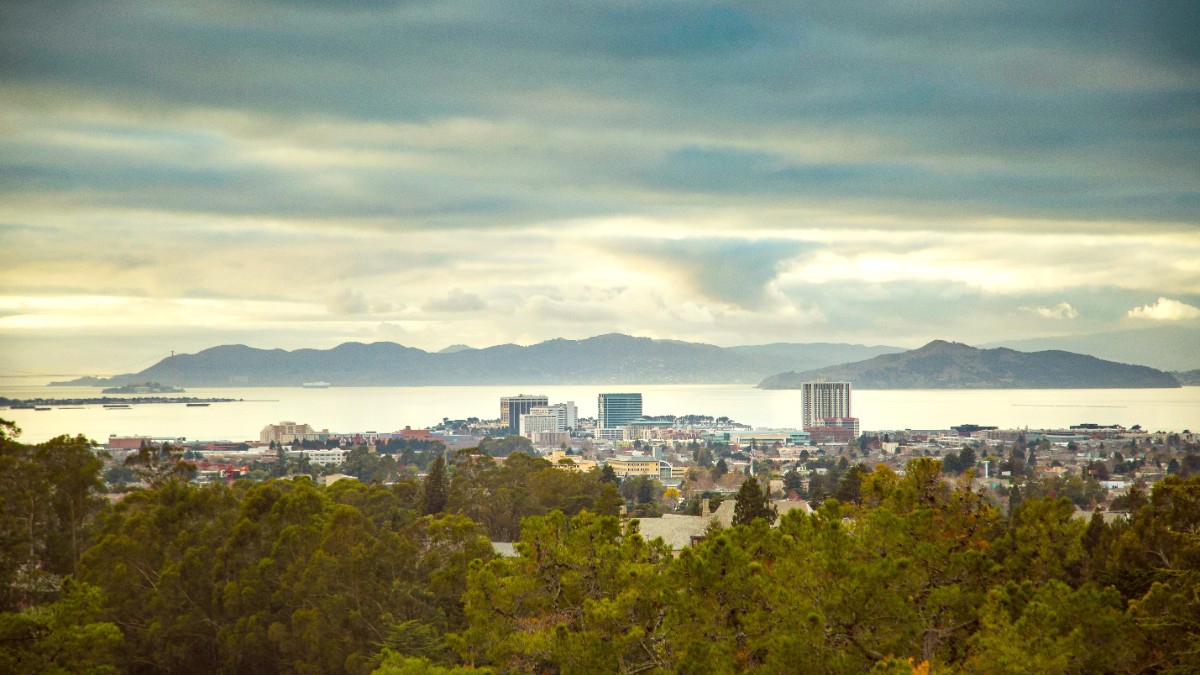
California, USA
Summer (June-August) average highs range from 70°F to 75°F (21°C to 24°C). Morning fog, "Karl the Fog," often rolls in, providing natural air conditioning and often burning off by midday. Rain is very rare.
Fall (September-November) sees average highs from 65°F to 75°F (18°C to 24°C). September and October often bring the warmest, clearest days, as summer fog diminishes. This period presents stable, comfortable weather.
High Season (June - August; also late September - October) presents warm, generally dry weather, suitable for outdoor events. Accommodation prices peak during summer, and popular attractions note increased crowds. Late September and October often bring the most consistently warm and clear days.
Shoulder Season (April - May; November) means pleasant temperatures and fewer crowds. Spring displays blossoming flowers and a fresh atmosphere. November can still provide clear, comfortable days before winter rains. Low Season (December - March) marks the most budget-friendly time, with lower accommodation prices and fewer crowds.
Air quality implications
Consult AirNow for updates, especially if you have respiratory sensitivities.
Regional wildfires, especially in late summer and fall, can result in smoke and hazy skies.
Seismic zone considerations
Familiarize yourself with "Drop, Cover, and Hold On" procedures.
California building codes are stringent, structures withstand seismic activity.
Best seasons for exploration
Spring (April-May) and Fall (September-October) conditions are ideal for hiking and parks.
Fall (September-October) weather suits UC Berkeley campus exploration.
Average highs range from 70°F to 75°F (21°C to 24°C), with lows from 55°F to 60°F (13°C to 16°C). The defining feature is morning fog, often burning off by midday. Humidity levels are generally low to moderate. Rain is very rare.
Average highs are from 55°F to 60°F (13°C to 16°C), and lows from 40°F to 45°F (4°C to 7°C). The majority of Berkeley's annual rainfall occurs. Sustained downpours are uncommon; instead, intermittent showers or periods of light rain prevail. Humidity is higher.
70-75°F (21-24°C)
55-60°F (13-16°C)
65-75°F (18-24°C)
55-60°F (13-16°C)
40-45°F (4-7°C)
Entry rules apply to all parts of the U.S., including California. A valid passport is a requirement for entry into the United States for all international visitors.
The VWP allows citizens of certain participating countries to travel to the U.S. Without a visa for tourism or business stays of 90 days or less.
Citizens of non-VWP countries, or those staying longer than 90 days for tourism/business, usually require a B-1 (business) or B-2 (tourism) visa.
Plan your visa and entry requirements well in advance of your desired travel dates, especially if a traditional visa is a requirement. Interview wait times can be extensive.
Berkeley, like much of the Bay Area, incurs expenses, but with smart planning, you manage spending effectively.
The official currency of the United States is the United States Dollar (USD, represented by the $ symbol).
Major credit cards (Visa, Mastercard, American Express, Discover) are widely accepted. ATMs are readily available. Carrying some cash stands useful for small purchases or tipping.
An estimated daily budget of $80 - $150 USD. This covers hostel dorm beds, grocery-focused meals, and extensive public transit use.
Focus on free attractions like UC Berkeley campus and parks.
Limited to no luxury experiences or fine dining.
An estimated daily budget of $150 - $300 USD. This covers comfortable 3-star hotels, a mix of casual and mid-range dining, and a combination of public transit and occasional ride-sharing.
Visit a few paid attractions like BAMPFA or Lawrence Hall of Science.
Not suitable for consistent fine dining or premium services.
An estimated daily budget of $300+ USD. This accommodates 4-5 star hotels, regular fine dining, and frequent use of taxis or private car services.
Private tours, exclusive experiences, and high-end shopping are possible.
This budget exceeds basic travel and focuses on premium services.
| Category | Type | Price Range |
|---|---|---|
| Accommodations | Hostel (dorm bed) | $40 - $70 |
| Meals | Dinner (mid-range) | $25 - $60+ |
| Transportation | BART (per ride) | $4 - $15 |
Berkeley, generally a safe destination, benefits from awareness of common concerns and preparation for potential issues.
No specific required vaccinations for entry; consult doctor for routine updates.
Use Broad-spectrum sunscreen SPF 30+, Wide-brimmed hat, and Sunglasses. Seek shade during peak hours.
Stay hydrated, carry a Reusable water bottle, and refill frequently.
Poison Oak/Ivy: "Leaves of three, let it be." If contact, wash immediately.
Tap water in Berkeley stands safe to drink and maintains high quality standards. You confidently refill your Reusable water bottle from any tap.
Food hygiene and safety standards in U.S. Restaurants and food establishments maintain high levels.
Mosquitoes: Not a major concern, but present near standing water, consider repellent.
Dial 911 for all life-threatening emergencies (police, fire, ambulance).
Alta Bates Summit Medical Center (Berkeley campus) provides emergency services and comprehensive care.
For non-life-threatening needs, search "urgent care Berkeley."
Berkeley generally maintains a lower violent crime rate compared to the national average. Property crime, especially theft and car break-ins, is a concern in urban areas.
Travel insurance is a sensible investment for all international travelers. A comprehensive policy helps cover unforeseen events like medical emergencies (very expensive without insurance), trip cancellations, lost luggage, and delays.
911 (Police, Fire, Ambulance)
UC Berkeley Police: (510) 642-3333, City of Berkeley Police: (510) 981-5900
World Nomads, SafetyWing, Insubuy (Compare policies to meet needs)